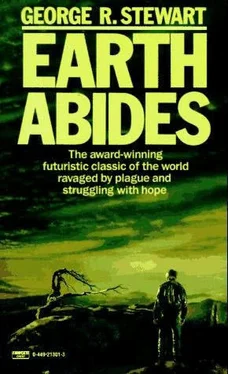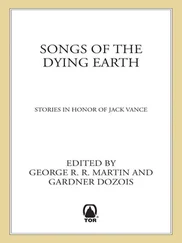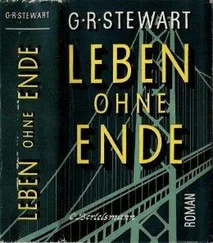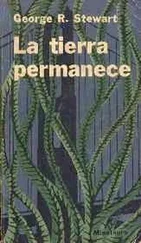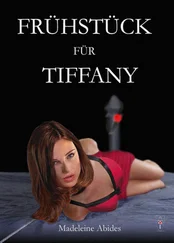A fence was a fact, and a fence was also a symbol. Between the herds and the crops, the fence stood as a fact, but between the rye and the oats, it was only a symbol, for the rye and the oats did not mingle of themselves. Because offences the land was cut into chunks and blocks. The pasture changed to the plowed land sharply at the fence, and on the other side of the plowed land, at the line of the fence, went the highway, and beyond the highway was the orchard, and then another fence with the lawns and the house beyond it, and again at a fence, the barnyard. Once the fences are broken both in fact and in symbol, then there are no more blocks and chunks of land and sharp changes, but all is hazy and wavy, and fades from one into the other, as it was in the beginning.
After that, he lost track of the time still more. He did not travel far in any day because there was much rain, and the roads were not as smooth and straight as they had been in the West. Moreover he had lost his sense of hurry. He worked northeastward through the hills of Kentucky, then struck the Ohio River bottomland, and went on into Pennsylvania.
He foraged more for himself. He gathered green corn from the weed-grown corn-patches. There were ripe berries and fruit. Now and then in a garden he found a head or two of lettuce which had not been ruined by worms. Frequently, he pulled up carrots, and ate them raw, since he was very fond of raw carrots. He shot a young pig. He used the shotgun to bag two partridges. Again, with Princess shut in the car and protesting loudly, he spent a happy two hours slowly stalking a flock of turkeys which always scurried off just before he was within range. At last, however, he managed to get close enough to knock over a gobbler. Some weeks ago it must have been a tame turkey, but now it had gone wild, and from constant necessity of dodging foxes and wild cats had become almost as wary as if it had lived all its life in the woods.
Between rains the weather was warm, and when he felt like it, he stripped and swain in some likely looking stream. Since the water from faucets began to seem stale, he drank from springs and wells although by now, he judged, even the larger rivers should be free of sewage and factory refuse.
He became used to the look of the towns, and could generally tell whether they were entirely empty or whether by searching he might somewhere find a survivor or two. The liquor-stores were often looted. The other buildings usually undisturbed, although occasionally there had been tampering with the banks—people apparently still putting trust in money. In the streets there would be an occasional pig or dog, less often, a cat.
Even in this once more thickly inhabited part of the country he saw comparatively few bodies, and there was less stench of death than he had feared. Most of the farms and many of the smaller towns apparently had been left deserted when their last inhabitants withdrew to larger centers for medical care or else fled into the hills, hoping to escape infection. On the outskirts of every larger town he saw the piled-up dirt where the bulldozers had worked even in the last days. At the end, necessarily, many bodies must have been left unburied, but these were usually in the areas around hospitals which had been concentration-points. At the warning of his nose he avoided such spots or drove rapidly past them.
The surviving people, he found, were generally singles, occasionally couples. They were anchored firmly in their own places. Sometimes they seemed to wish that he would stay there with them, but they never wished to accompany him. He still did not find any of them with whom he wished to share the future. If necessary, he thought, he could return.
The country in some ways showed more change than the towns, although one would hardly have imagined so to begin with. But in the country the crops were growing up rankly with weeds. In this part, the wheat had not been cut at the time of the disaster, and now it was heavy in the head and the grains in some places had started to fall. The cattle and horses wandered about, and fences were obviously starting to go. Here and there a field of corn would remain undisturbed when the fence was tight, but more often the animals had forced an entrance.
Then, one morning, he crossed the Delaware River into New Jersey, and realized that he could reach New York by early afternoon.
He came to the Pulaski Skyway about noon. Once before, as a boy of fifteen, he had driven there with his father and mother. Then the streaming traffic had half terrified him; trucks and cars had come roaring in, seeming to converge from all directions, and then suddenly to drop out of sight again as they went off onto the down-ramps. He remembered his father gazing anxiously, this way and that, to watch the traffic-signs, and his mother nervously giving-advice. But now, Princess slept on the front seat beside him, and he speeded along the Skyway by himself.
Far ahead now he saw the high towers of the sky-scrapers, pearl-gray against a cloudy sky; there had been a shower, and the day was cool for mid-summer.
When he saw those towers, his feelings were strangely stirred. Now he knew, what he would not have been quite able to explain before, why he had headed for New York, even unconsciously. This, to every American, was the center of the world. According to what happened in New York, so in the long run, he could only think, it must happen elsewhere—“Falls Rome, falls the world.”
When he came to the clover-leaf above Jersey City, he stopped in the middle of the Skyway to read the signs. No brakes squealed suddenly behind him; no horns blared; no truck-drivers bawled obscenities at him for blocking the road; no policemen shouted through loud-speakers. “At least,” he thought, “life is quieter.”
From far off, he just caught the sound, some bird squawked twice—a seagull probably. The only other sound was the nearly imperceptible murmur of his own idling engine, as drowsy as the hum of bees. There at the last moment he flinched from trying either of the tunnels. Untended, they might have gradually filled with water, and he had a vague fear of being trapped. He swung north, and at last crossed by the empty George Washington Bridge, and came to Manhattan.
Stretched out between its rivers, the city will remain for a long time. Stone and brick, concrete and asphalt, glass—time deals gently with them. Water leaves black stains, moss shows green, a little grass springs up in the cracks. (That is only the surface.) A window-pane grows loose, vibrates, breaks in a gusty wind. Lightning strikes, loosening the tiles of a cornice. A wall leans, as footings yield in the long rains; after years have passed, it falls, scattering bricks across the street. Frost works, and in the March thaw some flakes of stone scale off. (It is all very slow.) The rain washes quietly through the gutters into the storm-drains, and if the storm-drains clog, the rain runs still through the gutters into the rivers. The snow piles deep in the long canyons, drifting at the street corners; no one disturbs it. In the spring, it too runs off through the gutters. As in the desert, a year is like an hour in the night; a century, like a day.
Indeed the city is much like the desert. From the asphalt and concrete-coated soil the rain runs off both ways into the rivers. Here and there in a crack the subtle grass and the hardy weeds grow up a little, but no tree or vine or tall grass takes root. The very shade trees by the avenues, lacking man’s care, die in their shallow pockets. The deer and the rabbits shun the empty streets; after a while even the rats go away. Only the flying creatures find there a refuge—the birds nest on the high ledges, and at morning and evening the bats fly out and in through the few broken windows. It will remain a long time, a very long time.
Читать дальше
